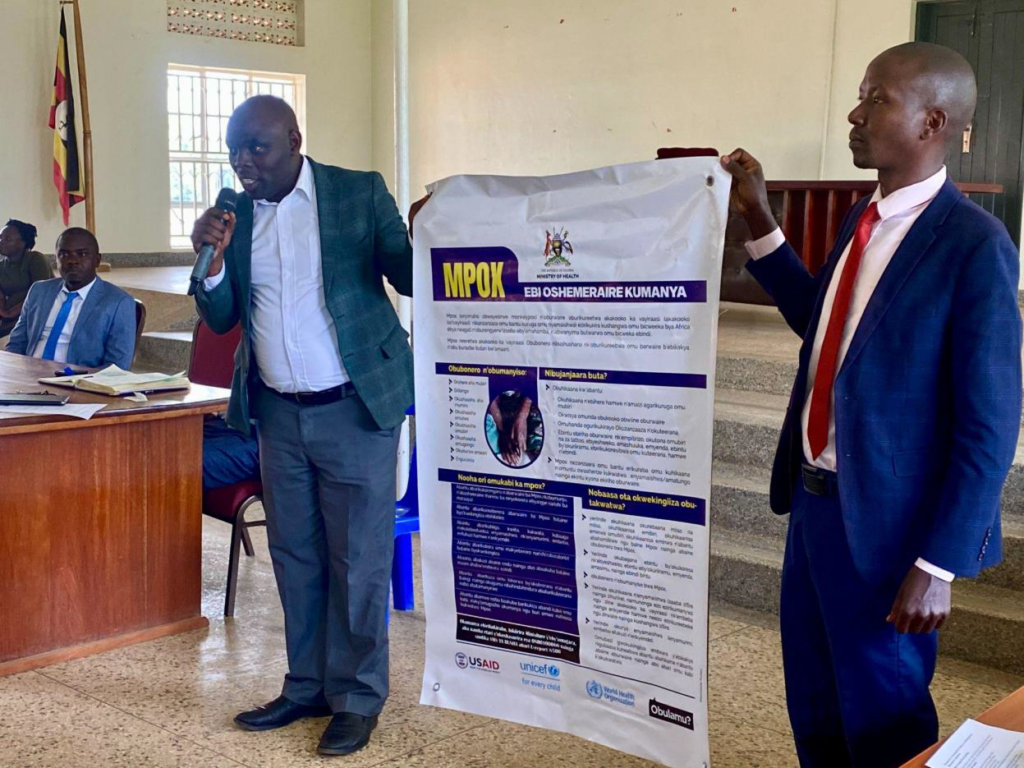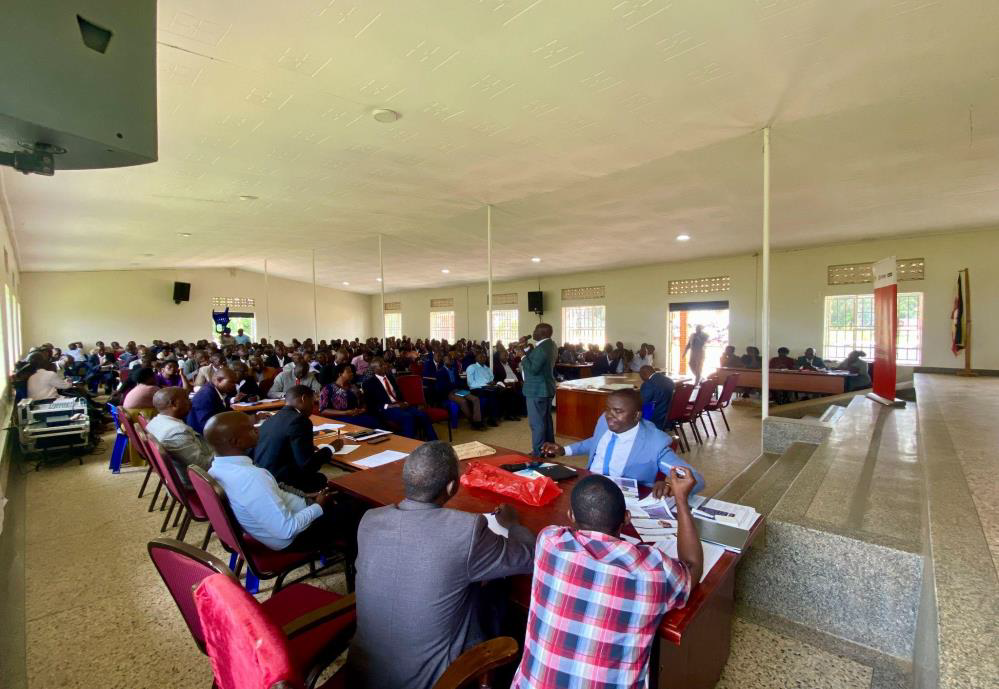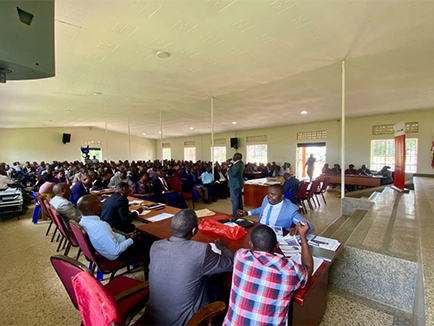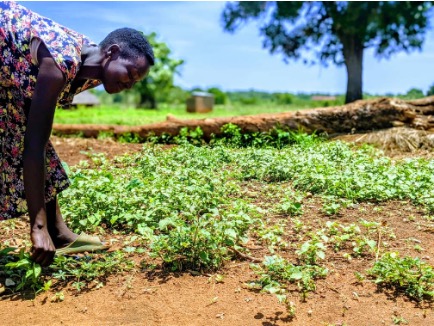In September 2024, the USAID Social and Behavior Change Activity (USAID SBCA) supported the Kigezi
Public Health Emergency Operations Center (PHEOC) and the Kanungu District Task Force (DTF) to
strengthen the multisectoral response to Mpox and Anthrax. Kanungu district, located near the
Democratic Republic of Congo (DRC), faces a heightened risk of cross-border disease transmission due
to frequent interactions between schoolchildren and its proximity to wildlife-rich areas like Queen
Elizabeth National Park and Bwindi Impenetrable Forest, which increase the risk of zoonotic diseases.
The DTF, led by the vice chairperson alongside the Deputy Chief Administrative Officer, District
Education Officer, and Assistant District Health Officer for Environmental Health, organized an orientation
session for 199 school managers. These managers were trained on Mpox and Anthrax prevention and
received 500 posters and 500 flyers to boost awareness. In response, the school managers developed a
plan to protect learners and their communities from these diseases.
The collaborative response action plan, which will be implemented and monitored by both the education
and health sectors, includes integrating Mpox prevention into classroom lessons, sharing information with
parents at PTA meetings, setting up handwashing stations, displaying posters, and creating “talking
compounds” that feature health messages.
The initiative also adopted a “child-to-child” strategy, empowering learners to share health messages with
their peers, families, and communities. Mr. Shaban Adam, the District Education Officer, highlighted the
potential impact of this approach, noting that with approximately 50,000 primary school children in the
district, health messages could reach 200,000 people. This assumes that each child shares the information
with two siblings and two parents, covering nearly 80% of Kanungu’s population.
Several schools have already begun implementing the plan. At Bushekwe Primary School, Mr. Tuhiriwe
briefed his staff on the Mpox response, while at Light Junior School, Ms. Tukurikye Debra introduced a
weekly “Mpox moment” during assemblies. Rugando Primary School, led by Mr. Tindiwegyi, reinstated
COVID-19 prevention practices, despite challenges in securing handwashing facilities.
Through this engagement, USAID SBCA has demonstrated the importance of multisectoral collaboration
in influencing health outcomes. The Mpox response in Kanungu underscores the critical need for the
health sector to work closely with the education sector and others to promote health behaviors that can
prevent and manage outbreaks.

Mr Katto Besisira, Kanungu ADHO-EH orientation school managers on Mpox .

A cross section of school managers attending Mpox orientation in Kanungu district.



